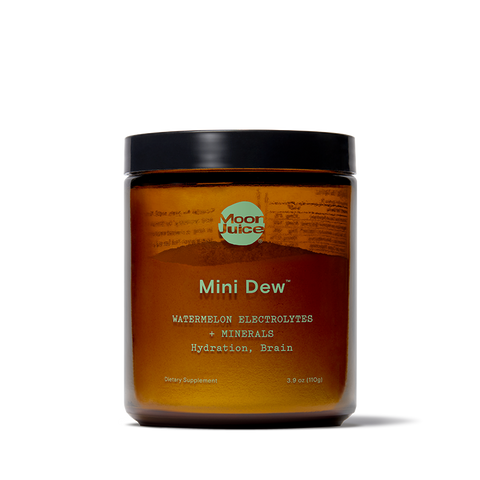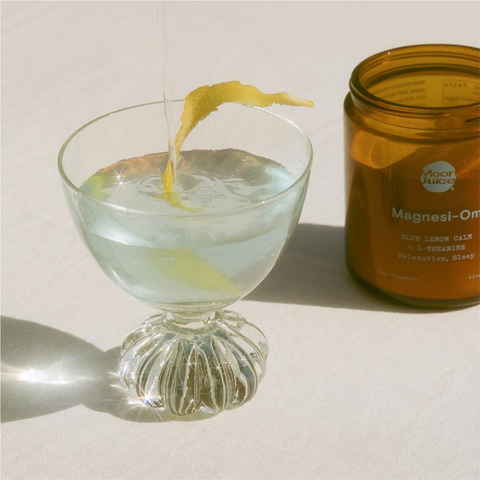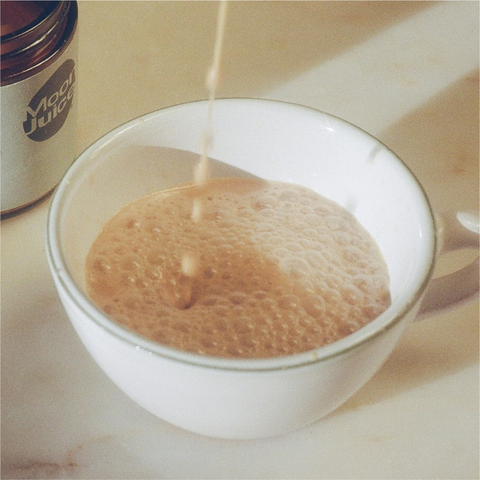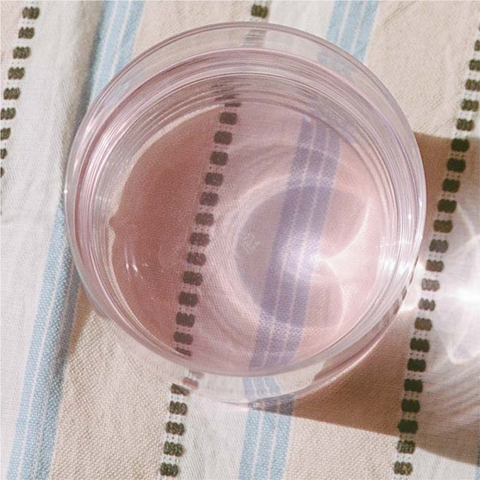You need water to live (obviously!). But H2O is just one part of the equation.
Your body runs on electrolytes. These electrically-charged minerals help drive various bodily functions, from nerve cell communication to muscle contractions. Without proper fluid intake, including electrolytes, you wouldn’t be able to keep the lights on.
Think back to a time when you were dehydrated. Maybe during a really sweaty hot yoga session or sunny Sunday hike when you forgot your water bottle. How did you feel? Probably foggy and sluggish, with the beginnings of a headache.
That was a sign that your body’s electrolyte levels were out of sync. Without the right ratio of electrolytes to water, your body can’t maintain osmotic balance. You can experience dehydration on a typical day, too, which is why proper hydration and regularly topping up your electrolyte stores is so vital.
As you consider ways to regularly take in electrolytes, you might wonder: do lemons have electrolytes? Lemons are actually one of the top foods with electrolytes. Let’s dig into the electrolyte profile of lemon water and what kind of benefits you can get from adding a splash of lemon’s electrolytes to your H2O.
Do Lemons Have Electrolytes?
Yes! Citrus fruit, including lemons, contain these essential electrically-charged minerals that play a role in keeping your body functioning from head to toe.
Different Electrolytes in Lemons
Here’s a breakdown of the different natural electrolytes in lemons.
Calcium
A single lemon contains about 17 milligrams (mg) of Calcium, about 1% of the daily recommended amount.
Why does your body need Calcium? It’s important for a few vital functions:
- It helps with muscle contractions, including the contractions essential for maintaining a steady heart rhythm.
- It’s important for nerve signaling, helping to transmit nerve signals between cells and allowing different parts of your nervous system to communicate.
- It plays a vital role in several cellular processes, including enzyme activation.
- It’s key for triggering clotting in your blood. When you bleed, Calcium ions jump to the rescue to help stop blood from endlessly flowing.
Sodium
A single fresh lemon contains a very small amount of Sodium, about 1.3 mg.
Sodium also plays a role in supporting nerve function and muscle contractions since it’s required for the electrical impulses that generate nerve function. Additionally, your body needs this electrolyte to:
- Maintain fluid balance, including your blood volume and blood pressure.
- Balance your body’s pH.
- Help transport nutrients across cell membranes and keep your body nourished.
Magnesium
Another vital electrolyte present in lemon juice? One lemon contains about 5.2 mg of Magnesium.
There are many benefits of Magnesium. In fact, it’s crucial for typical nerve and muscle function. It also plays a role in:
- Enzyme activation, including enzymes responsible for energy production and metabolism.
- Keeping your heart beating at a regular rate.
Because it plays a significant role in heart function, Magnesium imbalances can contribute to health problems like arrhythmia and muscle cramping.
Potassium
Potassium is the most abundant electrolyte in lemons. One lemon contains about 90 mg of Potassium.
And like Magnesium, Calcium, and Sodium, this essential mineral is vital for nerve, muscle, and heart function and maintaining optimal fluid balance.
Another important Potassium function? Regulating your blood pressure. Evidence shows that getting enough Potassium is important for maintaining healthy blood pressure and avoiding hypertension.
Is Lemon Water More Hydrating Than Water?
Yes. Because lemon contains various natural electrolytes, adding lemon juice to water boosts its hydrating properties. However, while lemons are high in Potassium, they only contain trace amounts of other electrolytes.
Benefits of Drinking Lemon Water
First, there are some obvious benefits to regularly replenishing your electrolyte stores with lemon water. Lemon water is hydrating, and while it isn’t as high in electrolytes as electrolyte drink mixes or other dietary supplements, drinking it can help you maintain adequate fluid intake.
Proper hydration through electrolytes can also support:
- Mental clarity. If you’ve ever been dehydrated, you know that a lack of water and electrolytes can leave you feeling foggy and out of sorts mentally.
- Muscle function and recovery. Proper fluid balance is key for performance in sports, and it’s crucial for recovery, too.
Lemon juice isn’t as hydrating as other electrolyte sources, but it can help boost the flavor of plain water. A simple squeeze of lemon is a great way to enhance water without driving up its sugar content. Lemon juice is also high in the antioxidant Vitamin C.
Another health benefit? Because lemon juice is acidic like your stomach juices, it may help with digestion. Evidence also suggests that the citrate present in lemon juice can prevent painful kidney stones.
Takeaways
While lemon juice is high in Potassium and can make plain water more flavorful, it’s not the most convenient electrolyte additive out there. Need an easy way to regularly replenish your electrolyte stores? Consider Mini Dew™, our electrolyte drink powder.
Mini Dew™ is 2 in 1: electrolytes + minerals for hydration and brain function.* A microplastic-free pink salt electrolyte supports optimal hydration by maintaining water balance in and around cells.* Ionic trace minerals give the body the elements it needs to feel good and energized, while chelated essential minerals enhance cognitive performance and help reduce brain fog.* Add one tsp of this powder to water and enjoy your own homemade electrolyte drink!

Sources
- American College of Sports Medicine. (2007). American College of Sports Medicine position stand. Exercise and fluid replacement. https://pubmed.ncbi.nlm.nih.gov/17277604/
- Calcium. (2023). https://ods.od.nih.gov/factsheets/Calcium-Consumer
- Dehydration. (n.d.). https://www.mountsinai.org/health-library/diseases-conditions/dehydration
- D’Elia L, et al. (2011). Potassium intake, stroke, and cardiovascular disease: A meta-analysis of prospective studies. https://pubmed.ncbi.nlm.nih.gov/21371638/
- Electrolytes. (2023). https://www.ncbi.nlm.nih.gov/books/NBK541123/
- Freitas D, et al. (2022). Glycemic response, satiety, gastric secretions and emptying after bread consumption with water, tea or lemon juice: A randomized crossover intervention using MRI. (2022). https://pubmed.ncbi.nlm.nih.gov/35013789/
- Judge LW, et al. (2021). Hydration to maximize performance and recovery: Knowledge, attitudes, and behaviors among collegiate track and field throwers. https://www.ncbi.nlm.nih.gov/pmc/articles/PMC8336541/
- Lemon, raw. (n.d.). https://www.nutritionvalue.org/Lemon%2C_raw_61113010_nutritional_value.html?size=1+fruit+%3D+65+g
- Liu S, et al. (2022). Review of phytochemical and nutritional characteristics and food applications of Citrus L. fruits. https://www.ncbi.nlm.nih.gov/pmc/articles/PMC9339955/
- Magnesium. (2022). https://ods.od.nih.gov/factsheets/Magnesium-HealthProfessional/
- Magnesium. (2021). https://ods.od.nih.gov/factsheets/Magnesium-Consumer/
- Millard-Stafford M, et al. (2021). The beverage hydration index: Influence of electrolytes, carbohydrate and protein. https://www.ncbi.nlm.nih.gov/pmc/articles/PMC8465972/
- Potassium. (2022). https://ods.od.nih.gov/factsheets/Potassium-HealthProfessional/
- Rowlands DS. (2022). The hydrating effects of hypertonic, isotonic and hypotonic sports drinks and waters on central hydration during continuous exercise: A systematic meta-analysis and perspective. https://pubmed.ncbi.nlm.nih.gov/34716905/
- Sodium in your diet. (2022). https://www.fda.gov/food/nutrition-education-resources-materials/sodium-your-diet
- Sodium, potassium and health. (2022). https://www.cdc.gov/salt/potassium.htm
- Strazzullo P, et al. (2014). Sodium. https://www.ncbi.nlm.nih.gov/pmc/articles/PMC3951800/
- Yu-Yahiro JA. (1994). Electrolytes and their relationship to normal and abnormal muscle function. https://pubmed.ncbi.nlm.nih.gov/7854827/
- Zhang N, et al. (2019). Effects of dehydration and rehydration on cognitive performance and mood among male college students in Cangzhou, China: A self-controlled trial. https://www.ncbi.nlm.nih.gov/pmc/articles/PMC6603652/














